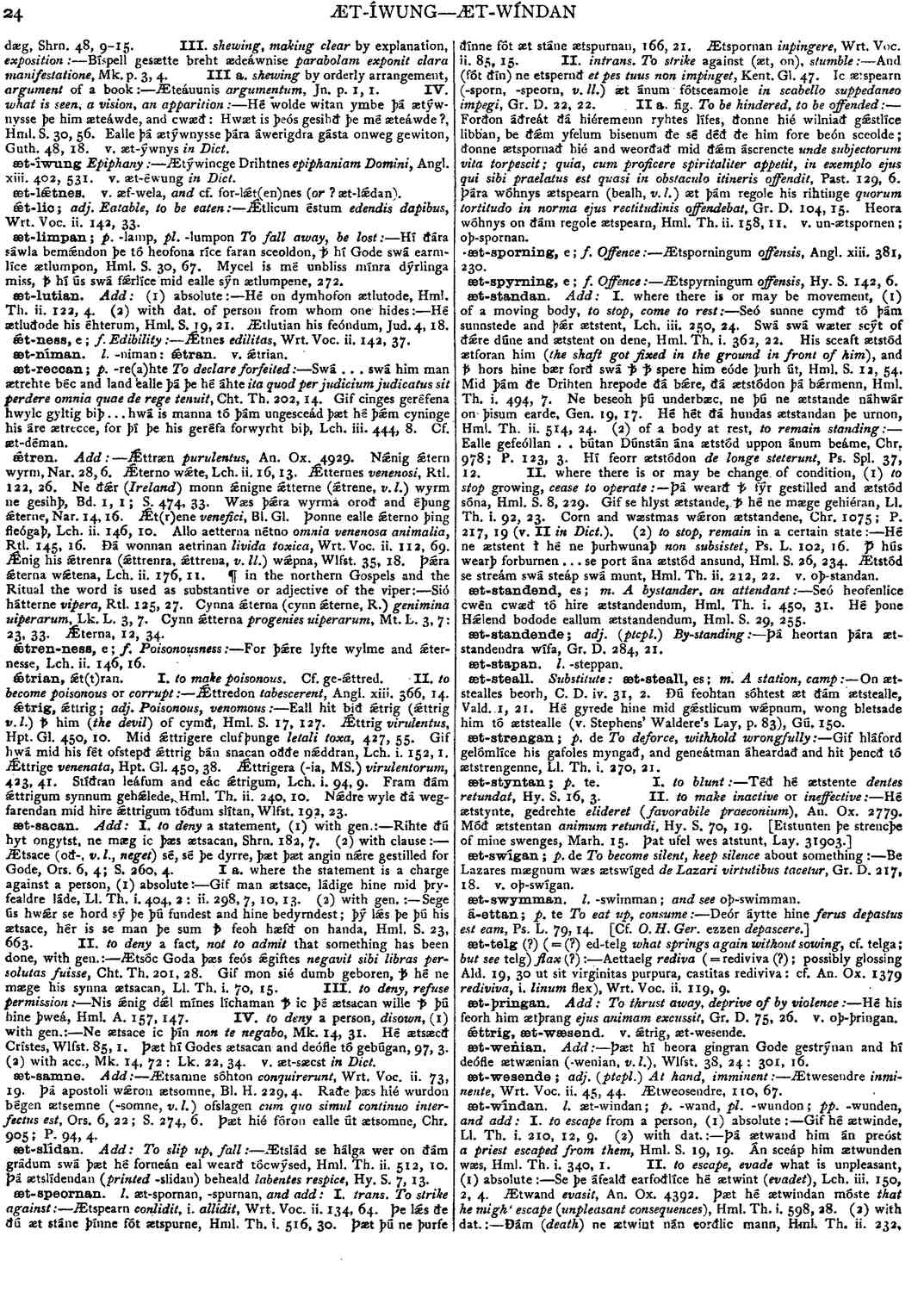æt-standan
- Seó sunne cymð tó þám sunnstede and þǽr ætstent. Lch. iii. 250, 24.
-
Swá swá wæter scýt of ðǽre dúne and ætstent on dene,
- Hml. Th. i. 362, 22.
-
His sceaft ætstód ætforan him (
the shaft got fixed in the ground in front of him
), and ꝥ hors hine bær forð swá ꝥ ꝥ spere him eóde þurh út,- Hml. S. 12, 54.
- Mid þám ðe Drihten hrepode ðá bǽre, ðá ætstódon þá bǽrmenn. Hml. Th. i. 494, 7.
-
Ne beseoh þú underbæc, ne þú ne ætstande náhwár on þisum earde,
- Gen. 19, 17.
-
Hé hét ðá hundas ætstandan þe urnon,
- Hml. Th. ii. 514, 24.
- Ealle gefeóllan . . bútan Dúnstán ána ætstód uppon ánum beáme. Chr. 978; P. 123, 3.
-
Hí feorr ætstódon
de longe steterunt
,- Ps. Spl. 37, 12.
-
Þá wearð ꝥ fýr gestilled and ætstód sóna,
- Hml. S. 8, 229.
-
Gif se hlyst ætstande, ꝥ hé ne mæge gehiéran,
- Ll. Th. 1. 92, 23.
-
Corn and wæstmas wǽron ætstandene,
- Chr. 1075; P. 217, 19 (v. II. in Dict.).
-
Hé ne ætstent ł hé ne þurhwunaþ
non subsistet
,- Ps. L. 102, 16.
- ꝥ hús wearþ forburnen. . . see
-
Ætstód se streám swá steáp swá munt,
- Hml. Th. ii. 212, 22.
Bosworth, Joseph. “æt-standan.” In An Anglo-Saxon Dictionary Online, edited by Thomas Northcote Toller, Christ Sean, and Ondřej Tichy. Prague: Faculty of Arts, Charles University, 2014. https://bosworthtoller.com/38107.
Checked: 0